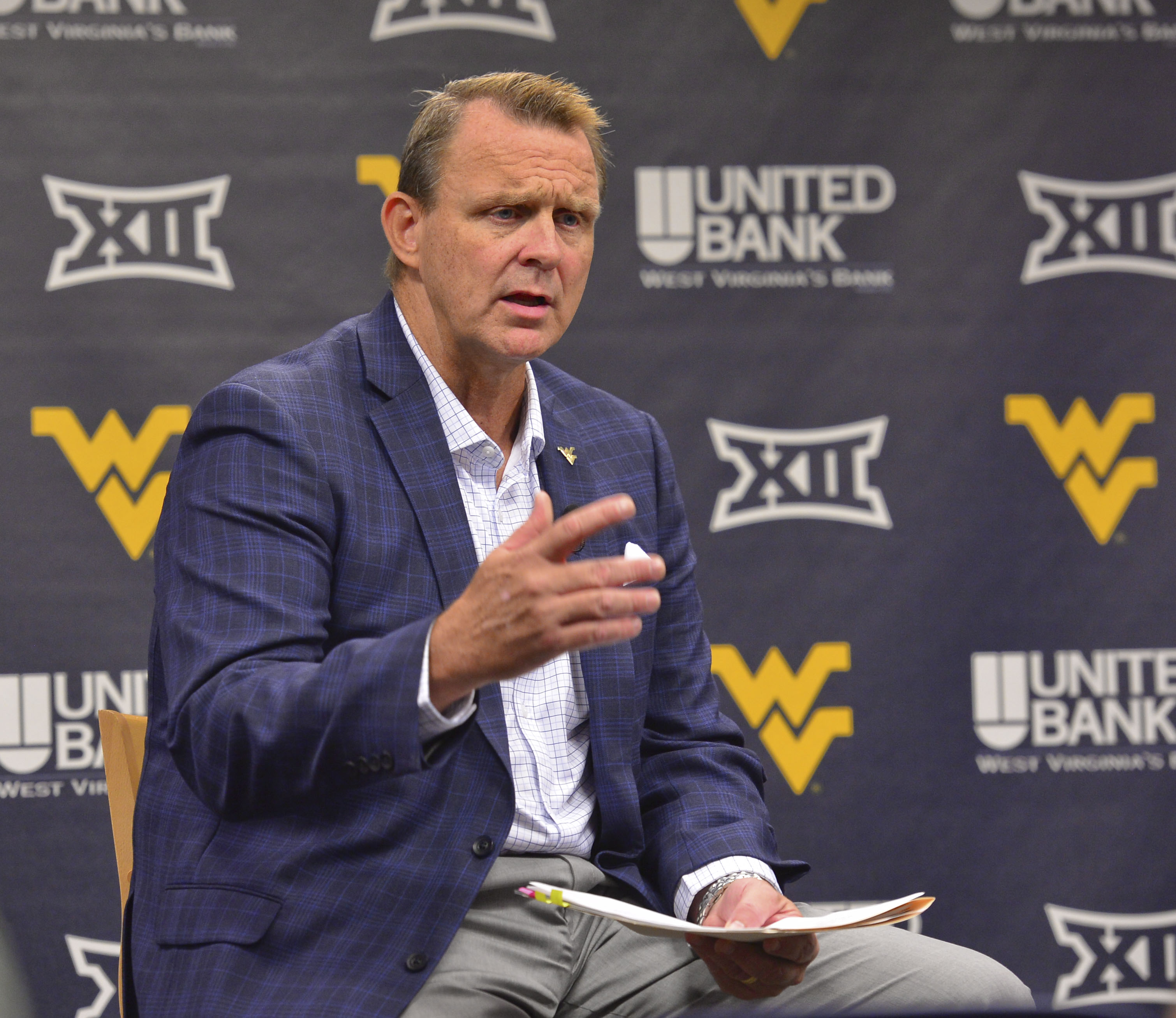MORGANTOWN, W. Va. — Shane Lyons did not mince words when it came to any discussion of the West Virginia Legislature proposing a similar bill to the one that Calif. Gov. Gavin Newsom passed Monday.
Newsom, with an assist from NBA superstar LeBron James, signed into law the Fair Pay to Play Act, which makes it illegal for Calif. universities to punish their athletes for using their own name, likeness or image in endorsement opportunities.
The law will go into effect in January 2023.
“Yes, I would push against it if something like that came up in our state,” the West Virginia athletic director said. “I believe that isn’t something that should be legislated by the states. It should be governed at the national level through the NCAA.
“You can’t have 50 states all doing their own thing on this issue. What if one state’s law is more relaxed than another? This can’t be the wild, wild West out there.”
The Calif. law took a torpedoed-sized shot at the NCAA’s amateur model, which disqualifies athletes for using their likeness for profit, essentially saying that by doing so makes them a professional and no longer eligible for college sports.
“Colleges reap billions from student athletes but block them from earning a single dollar,” Newsom tweeted. “That’s a bankrupt model.”
Lyons agrees that in theory allowing college athletes to profit off of their names is a sound discussion, but is quick to point out several drawbacks.
“To me, how can you make all of this work where you don’t have boosters out there simply handing out money to athletes?” Lyons said. “There are a lot of things we have to wrap our arms around.
“Are we talking about local or national endorsements? Something that no one is talking about is taxes. Currently, financial aid to athletes is not taxable, but something like this, I would imagine, would be subject to tax. How is all of that handled?”
Another issue: Is the actual number of athletes who will reap the benefits of the law be outweighed by the possible damage it does to their teams?
“I’ll use football as an example,” Lyons began. “In all likelihood, you’re talking about one or two guys you could justify as ones who could go out there and take advantage of the opportunity.
“What does that do to a locker room filled with 120 guys? Overall, you’re talking about a few select athletes that make up a small percentage of the athletes at each school.”
Lyons added that the NCAA’s amateur model likely needs to be examined or updated, “I would almost go to the point of no longer calling it an amateur model and simply refer to it by saying this is the collegiate model.”
He also points out that athletes are not forced to attend college before going pro.
“There are other options out there,” he said.
The counter argument put forth by James and others in favor of the bill refer to the escalating figures paid out by Power 5 conferences to their member schools, as well as the growing salaries paid out to Division I football and men’s basketball coaches, while college athletes receive no cut of those profits.
WVU earned $38.8 million this year in its share of Big 12 TV revenues.
Clemson’s Dabo Swinney is the highest-paid college football coach at $9.3 million, while Duke’s Mike Krzyzewski is the highest-paid college basketball coach at $8.9 million per year.
Bob Huggins is the Mountaineers’ highest-paid coach. He is due to earn $4.05 million in 2019-20 — before incentives — according to his contract.
Lyons said that WVU’s $38.8 million is part of the school’s annual athletic budget of $90 million, but that the school’s yearly expenses also approach $90 million, once scholarship payments, travel for the athletic teams, coaches’ salaries, payments to cover bonds that paid for new athletic facilities, utility bills and other expenditures are calculated.
“I would estimate that we cut a check to the university for $11 million each year just to pay for our scholarships,” Lyons said.
Lyons also estimates that college athletes receive $75,000-100,000 per year in benefits including their scholarship, full-cost-of-attendance stipend, as well as academic services, meals and equipment.
“That is a conservative estimate, too,” he said.
The question raised by the Calif. bill: Does all of that outweigh a college athlete’s right to earn compensation for using their own name for endorsement opportunities?
“I would say that the idea of using one’s name or likeness is something that really needs to be discussed within the NCAA as an organization,” Lyons said. “Like so many things, the devil is in the details and there are still so many unanswered questions out there.
“For me, I still think it’s a question of how can we keep this as level of a playing field as possible for all of the schools?”
TWEET @bigjax3211




